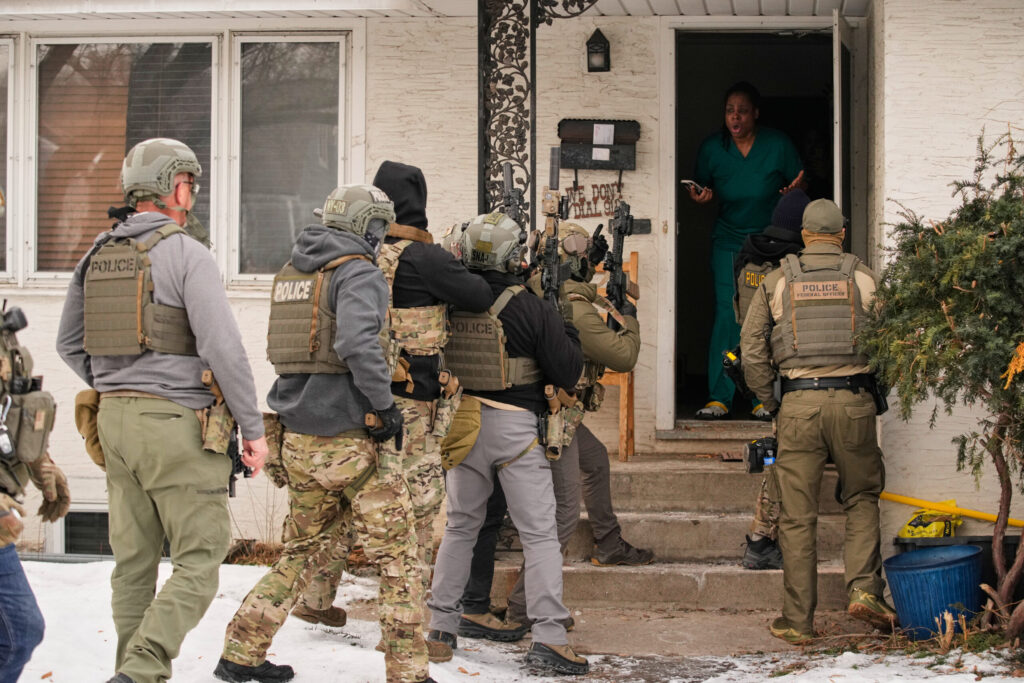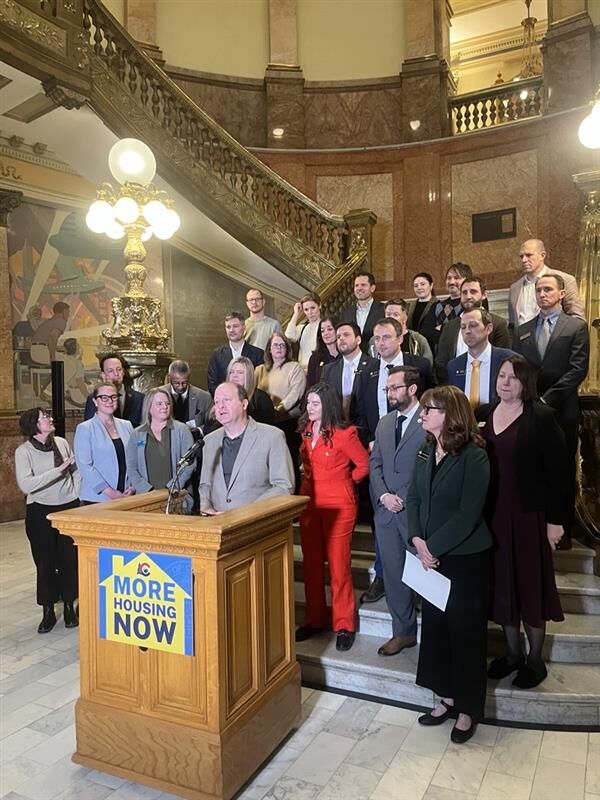Discussion about rising crime rates continues with ‘Colorado Conversations’

Crime rates in Colorado have jumped in the past three years, especially vehicle thefts, burglaries, homicides and aggravated assaults. Law enforcement officials, criminologists and public health experts seem to agree that the increases don’t have a single cause. But they’re divided on what they believe are the most significant contributors, be it public policy decisions or macro-level factors such as poverty, and the best ways to approach lowering crime.
The debate was the subject of a panel discussion Tuesday morning, “Crime and Justice: The Colorado Challenge,” sponsored by The Denver Gazette and Colorado Politics.
From 2019 to 2021, Colorado’s property crime rates increased by 20%, motor vehicle theft rates rose by 86%, the rate of commercial burglaries increased by 48% and the overall violent crime rate had a 17% increase, according to data compiled by the Colorado Bureau of Investigation.
Denver Police Chief Paul Pazen is particularly concerned that a handful of recent laws in Colorado have contributed to certain crime rates surging ahead of other states, such as a 2014 law that downgraded the seriousness of motor vehicle theft in the criminal code and narrowing the swath of felony offenses that make it illegal for someone to possess a gun.
Colorado’s car theft numbers used to rank below the nationwide average from about 2008 to 2014, he said.
“Now Colorado is the single worst state in the country for auto thefts,” he said.
“I think … a weakness that we have as a state is legislation will pass, and then there’s not a mechanism to study the effects of that. Did the desired impact occur or not? Are there unintended consequences?”
However, the FBI’s repository of crime data, compiled from statistics reported by local law enforcement agencies, cautions against ranking geographic locations against each other because the web of contributors to crime in each place are unique.
Lisa Pasko, the University of Denver’s Department of Sociology and Criminology chair, said during Tuesday’s panel discussion that crime rates were particularly low in Colorado in 2014, making increases in the years since then look especially pronounced.
Violent crime rates in Colorado and the U.S. reached their lowest since 1985 around 2013 to 2014 before beginning a general upward trend again, according to data compiled by the FBI.
“And while that might be a goal to shoot for, we shouldn’t treat those years as though that’s what we’ve always experienced,” she said.
Law enforcement officials are concerned with recidivism, especially among people who have committed violent crimes. Mitch Morrissey, Denver’s district attorney until 2017 and a fellow at the Common Sense Institute, said that since a relatively small group of people who are repeat offenders tend to commit a disproportionate share of serious crimes, focusing on incarceration of habitual offenders helps reduce recidivism.
Pasko said tackling crime should focus on addressing poverty and homelessness, since they lead to survival behaviors that veer into criminality. She disagreed with a characterization by Morrissey that some people who commit repeat offenses simply don’t want to participate in programs offered as alternatives to purely punitive prosecution – which he said he believes are important – such as drug courts and residential treatment, especially if limited spaces mean long waiting periods.
“We do know that homelessness is such a crime-adjacent (condition). We’re going to engage in survival strategies, and some of those are going to end up being criminal,” she said. “This is why it’s a big predictor and a big pathway factor to committing more serious crime.”
Lisa Raville, executive director of the Harm Reduction Action Center, said the conversation about reducing recidivism has to go beyond incarceration because most people leave the correctional system at some point. Resources should focus on transitional programs, she said.
“We want to talk about reengagement if we’re talking about recidivism; it’s setting people up successfully,” she said. “When people have felonies, they have difficulty accessing housing and employment, which puts them at a higher risk of recidivism.”
State policymakers identify soaring criminality in Colorado as a key challenge they vow tackle this year. Some blame the state’s “criminal friendly” policies as contributing to the trend, while others say the “lock up everybody” mentality has a longer record of failing communities. Colorado Politics Managing Editor Luige Del Puerto leads a panel of experts to discuss crime in the state, and what can be done about it. Panelists: ? Lisa Pasko, Ph.D., Associate Professor and Chair, Department of Sociology and Criminology, Universit (lisa.pasko@du.edu) ? Paul Pazen, Chief, Denver Police Department (Paul.pazen@denvergov.org) ? Mitch Morrissey, Criminal Justice Fellow, Common Sense Institute (mitch.r.morrissey@gmail.com) ? Lisa Raville, Executive Director, Harm Reduction Action Center (lisa.harm.reduction@gmail.com)













